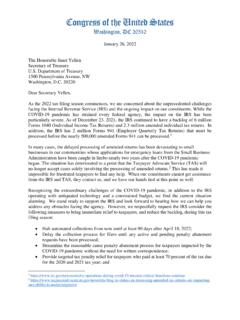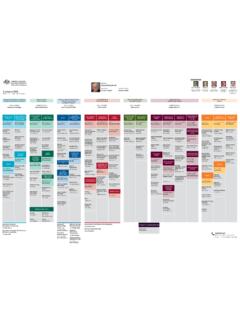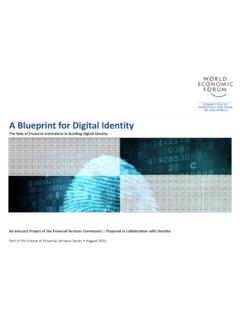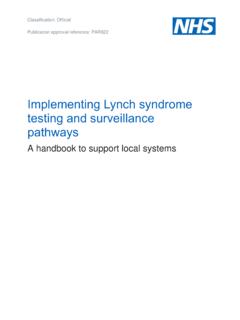Transcription of A LEVEL POLITICS COMPONENT 2 LEARNING GUIDE
1 A LEVEL POLITICS COMPONENT 2 LEARNING GUIDE . Key content for COMPONENT 2. COMPONENT 2 - UK Government 1. The UK Constitution (MM). The nature and sources of the UK constitution How the constitution has changed since 1997. Devolution of power in the UK: Scotland, Wales & N Ireland Debates on further constitutional reform 2. Parliament (MM). The structure and role of the House of Commons & House of Lords The powers of the Commons and Lords The Legislative process Parliament and the Executive 3. Prime Minister and Executive (PA). The structure, role, and powers of the Executive. The concept of ministerial responsibility The powers of the Prime Minister and Cabinet - with pre-1997 and post-1997 case studies 4. Relations between branches of government (MM). The Supreme Court and its interactions with, and influence over, the legislative and policy-making processes.
2 The relationship between the Executive and Parliament The aims, role and impact of the European Union on UK. Government The location of sovereignty in the UK political system. COMPONENT 2 - Non-Core Political Ideas Feminism (MM). 1. Feminism: ideas and principles 2. Different types of feminism 3. Feminist thinkers and their ideas. COMPONENT 2 UK Government and Non-Core Political Ideas MM - 6. weeks Topic 1 - The UK Constitution K. The UK Constitution Subject Content Students should gain knowledge & understanding of: 1. Key Terms & Concepts: The nature and sources of the UK. constitution, including: Constitution an overview of the development of the Unentrenched (vs entrenched). constitution through key historical Uncodified (vs codified) documents: Unitary (vs federal) o Magna Carta (1215); Bill of Rights Parliamentary sovereignty (1689); Act of Settlement (1701).
3 Acts of Union (1707); Parliament The rule of law Acts (1911 and 1949); The European Statute law Communities Act (1972). Common law the nature of the UK constitution: unentrenched, uncodified and unitary, Conventions and the twin pillars' of parliamentary Authoritative works sovereignty and the rule of law Treaties the five main sources of the UK. constitution: statute law; common law;. Devolution conventions; authoritative works and treaties (including European Union law). How the constitution has changed since 1997. Under Labour 1997 2010: House of Lords reforms, electoral reform;. devolution; the Human Rights Act 1998;. and the Supreme Court. Under the Coalition 2010 15: Fixed Term Parliaments; further devolution to Wales. Any major reforms undertaken by governments since 2015, including further devolution to Scotland (in the context of the Scottish Referendum).
4 The role and powers of devolved bodies in the UK, and the impact of this devolution on the UK. Devolution in England. Scottish Parliament and Government. Welsh Assembly and Government. Northern Ireland Assembly and Executive. Debates on further reform: An overview of the extent to which the individual reforms since 1997 listed in section above should be taken further. The extent to which devolution should be Page 2. The UK Constitution Subject Content Students should gain knowledge & understanding of: extended in England. Whether the UK constitution should be changed to be entrenched and codified, including a bill of rights. Tasks Reading and annotated timeline on constitutional development Research and essay on codification Reading and groupwork on constitutional changes 2010->. Debate on constitutional change Sample essay question (timed).
5 Key Reading: UK Government & POLITICS , lynch , Fairclough and Cooper, Hodder Education 2017 Chapters 1, 2 3 &. 4. POLITICS Review, February 2014, Debate: Should the UK have a codified constitution? Paul Jeater and Ian Richards POLITICS Review, February 2014, Constitutional Reform: Unfinished Business? Kay Moxon POLITICS Review, April 2014, Focus on Constitutional Conventions, Nick Gallop Extension Reading: Vernon Bogdanor, The New British Constitution, 2009. heritage/evolutionofparliament/parliamen taryauthority/revolution/. union-1707/. lords-reform/. Page 3. heritage/evolutionofparliament/legislati vescrutiny/parliament-and-europe/. Sample Questions: Spec 1 Q: Using the source, evaluate the view that the logical next step after devolution to Scotland, Wales and Northern Ireland is the devolution of further power to England.
6 (30). In your answer you should draw on relevant knowledge and understanding of the study of COMPONENT 1: UK POLITICS and Core Political Ideas. You must consider this view and the alternative to this view in a balanced way. Spec 1 Q: Using the source, evaluate the view that Constitutional reforms in the UK since 1997 have been weak, incomplete and require further change. (30). In your answer you should draw on relevant knowledge and understanding of the study of COMPONENT 1: UK POLITICS and Core Political Ideas. You must consider this view and the alternative to this view in a balanced way. Spec 2 Q: Using the source, evaluate the view that judges should not exercise control over the power of government. (30). In your response you must: compare and contrast the different opinions in the source examine and debate these views in a balanced way analyse and evaluate only the information presented in the source.
7 2019 Q1(b) Using the source, evaluate the view that devolution is in danger of undermining the unity of the United Kingdom. (30). In your response you must: compare and contrast the different opinions in the source examine and debate these views in a balanced way analyse and evaluate only the information presented in the source. Spec 2 - Q2 (a) Evaluate the argument that there are more advantages to having a codified constitution than remaining with an uncodified constitution. (30). In your answer you should draw on relevant knowledge and understanding of the study of COMPONENT 1: UK POLITICS and Core Political Ideas. You must consider this view and the alternative to this view in a balanced way. Page 4. COMPONENT 2 UK Government and Non-Core Political Ideas MM- 6 weeks Topic 2 - The UK Parliament K. UK Parliament Subject Content Students should gain knowledge & understanding of: 2.
8 Key Terms & Concepts: The structure and role of the House of Commons and House of Lords. Parliament The selection of members of the House House of Commons of Commons and House of Lords, House of Lords including the different types of Peers. Confidence and supply The main functions of the House of Commons and House of Lords and the Salisbury Convention extent to which these functions are Parliamentary fulfilled. privilege Legislative bills The comparative powers of the House of Public bill committees Commons and House of Lords. Backbenchers The exclusive powers of the House of Commons. Select committees The main powers of the House of Lords. Opposition Debates about the relative power of the two houses. The legislative process. The different stages a bill must go through to become law. The interaction between the Commons and the Lords during the legislative process, including the Salisbury Convention.
9 The ways in which Parliament interacts with the Executive. The role and significance of backbenchers in both Houses, including the importance of parliamentary privilege. The work of select committees. The role and significance of the opposition. The purpose and nature of ministerial question time, including Prime Minister's Questions. Tasks Play Definitions of key concepts Notemakng Page 5. Research on MPs backgrounds Viewing and analysis of parliamentary debates and committee sessions Following the progress of a Bill through parliament Prepared debate on Lords reform Essay on scrutiny Key Reading: UK Government & POLITICS , lynch , Fairclough and Cooper, Hodder Education 2017 Chapter 5. POLITICS Review, November 2014, The House of Commons: A rejuvenated institution? Kay Moxon POLITICS Review, November 2013, Parliament: What does it do and how effectively does it do it?
10 Alexandra Kelso POLITICS Review, April 2013, AS Focus on Departmental Select Committees, Paul Smith POLITICS Review, April 2013, The House of Lords: Why is it so difficult to reform? Paul Fairclough POLITICS Review, April 2012, The House of Commons: A pit of partisan jeering? peter Riddell POLITICS Review, April 2011, Why does the House of Lords Matter? Meg Russell POLITICS Review, February 2011, Debate: Should the House of Lords be wholly elected? Richard Whitaker and Philip lynch Extension Reading: Philip Norton, Parliament in British POLITICS POLITICS Review, April 2015, Focus on The Backbench Business Committee, Katie Shapiro Sample Questions: Spec 2 Q: Using the source, evaluate the view that Prime Ministers Questions should be abolished and replaced by other forms of parliamentary scrutiny of the executive.






